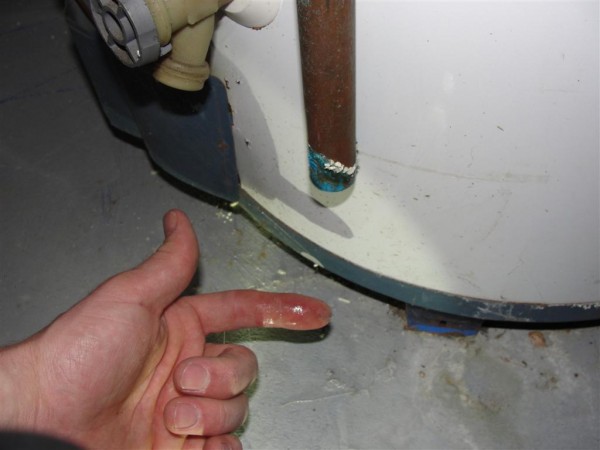Your water heater is a very important part of your home’s infrastructure. Without it your home’s central heating will cease to function, and unless you have an electric shower then good luck trying to have a decent wash in the morning.
To make matters worse, having the water heater repaired or replaced is a very costly procedure and one that isn’t guaranteed to be done immediately. Naturally knowing the signs of impending water heater malfunction is important if you want to avoid expensive bills later on down the line.
It’s fortunate, then, that there are a number of warning signs that can crop up in the event of an impending water heater malfunction. Some are easy to spot. Others require a bit more of an in-depth analysis.
Water is Rusty
If you run a tap and notice that the water seems to be strange reddish colour and leaves gritty sediment in the basin, then your water heater is probably suffering from a rust problem. The reddish colour and gritty sediment are fragments of rust that have contaminated the water within the heater and are now running through the mains. This doesn’t only make the water dirty, it also means the heater itself is on the verge of a breakdown.
Rust is guaranteed to destroy more traditional heaters, so make sure you don’t ignore this symptom. If you do, then the corrosion will gradually eat through the tank’s container and start flooding.
Water Smells Funny or Metallic
Treat this as the same as rusty water — sediments have gotten into the water supply, hinting at a build-up of contaminants within the tank itself. If this is the case, flush it out. If you smell a strange sulphurous stench, not unlike rotting eggs, then that’s likely a gas leak. This is even more serious, and you will need to call a plumber immediately.
Heating Problems
If your tap is drawing water that’s either too hot or too cold, then there’s a pretty good chance that it may be a simple problem with the thermostat. If this is the case, a slight adjustment can bring the temperature back in line with your comfort.
Should you be getting no hot water at all, however, then you have a broken heating element. Fortunately, such a problem is relatively simple to fix. There’s not even any need to call in a professional plumber. If you already have a new component, it’s very easy to replace the broken parts yourself. After that, your water should immediately return to normal.
Tanks That Go “KER-KLUNK!” In the Night
This is a symptom that applies to any and all appliances within your house: anything that makes strange noises. If you find that your water-heater is making banging, grinding or cracking noises, then you’ve got a build-up of sediment on your hands within the tank.
As this sediment comes into contact with the heating element, it’s literally being burned away. This will create a lot of strange noises, and will eventually cause long-lasting corrosion of the tank itself, leading to metal fatigue. Inevitably, that leads to flooding.
Again, this is easy to fix. Flushing the tank will soon clear the sediment away.
A failing heating element can also result in a banging sound. Should you still be hearing the noises in your water heater after flushing the tank, it could be time to replace the heating component.
Leaks From the Heater
This is among the most terminal symptoms that your water heater can suffer display. A leak indicates that the tank within your heater has finally given up the ghost and is no longer water-tight. Whether due to corrosion, stress or age, water is escaping the tank. This problem will eventually get worse as the escaping water forces the leak open wider and allows yet more water through, creating a descending cycle of degradation.
If you spot puddles forming under your heater, or actively spot it leaking yourself, call a plumber like the folks at A1 Service Plumbing immediately. Do not wait, do it right at that moment. It’s too late now for repairs, unfortunately. The only solution is to replace the water heater with an entirely new model.
Christian Mills is a freelance writer who contributes advice and articles on practical topics of the home and everyday living.
